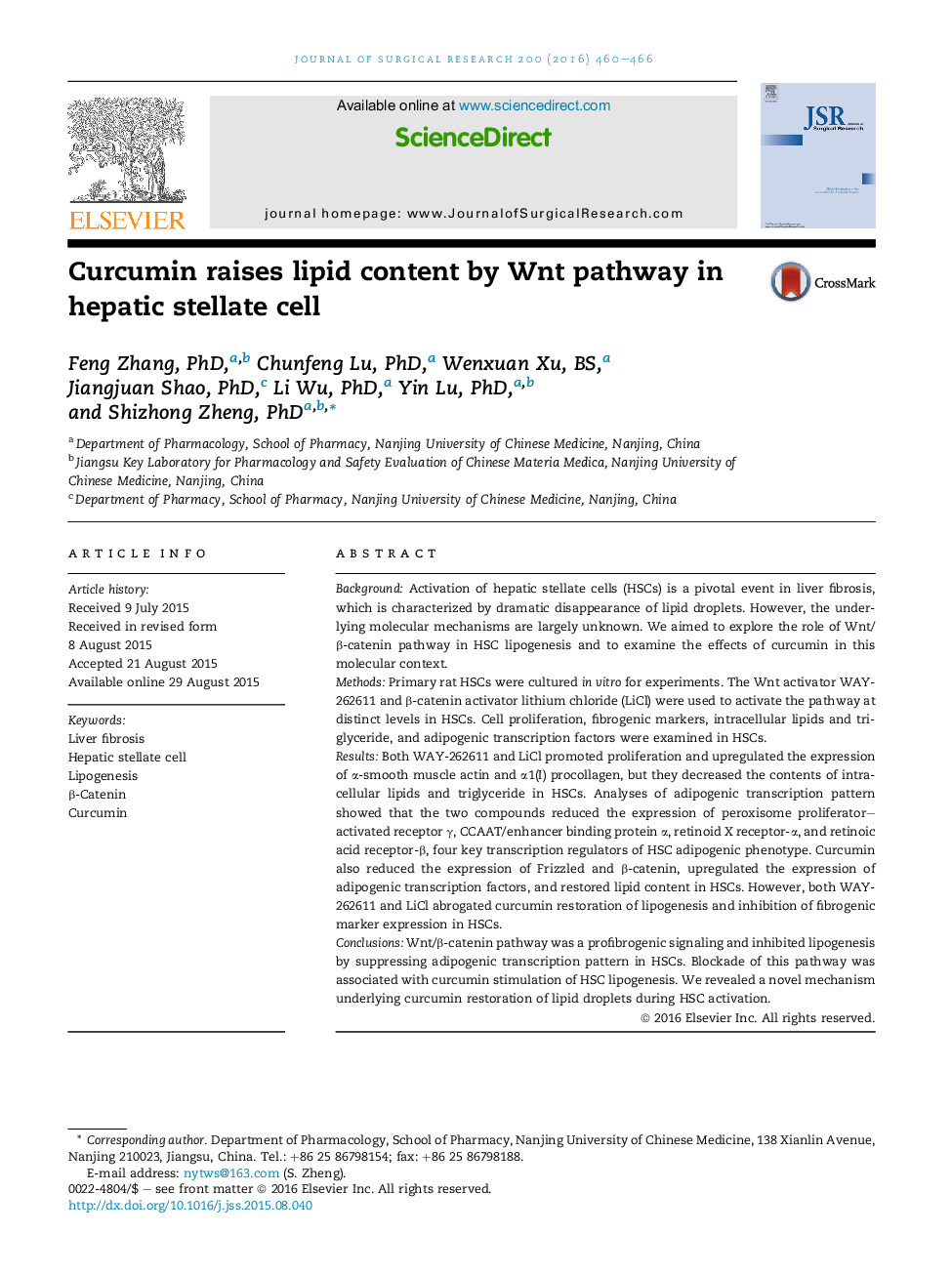| کد مقاله | کد نشریه | سال انتشار | مقاله انگلیسی | نسخه تمام متن |
|---|---|---|---|---|
| 6253370 | 1612526 | 2016 | 7 صفحه PDF | دانلود رایگان |

BackgroundActivation of hepatic stellate cells (HSCs) is a pivotal event in liver fibrosis, which is characterized by dramatic disappearance of lipid droplets. However, the underlying molecular mechanisms are largely unknown. We aimed to explore the role of Wnt/β-catenin pathway in HSC lipogenesis and to examine the effects of curcumin in this molecular context.MethodsPrimary rat HSCs were cultured in vitro for experiments. The Wnt activator WAY-262611 and β-catenin activator lithium chloride (LiCl) were used to activate the pathway at distinct levels in HSCs. Cell proliferation, fibrogenic markers, intracellular lipids and triglyceride, and adipogenic transcription factors were examined in HSCs.ResultsBoth WAY-262611 and LiCl promoted proliferation and upregulated the expression of α-smooth muscle actin and α1(I) procollagen, but they decreased the contents of intracellular lipids and triglyceride in HSCs. Analyses of adipogenic transcription pattern showed that the two compounds reduced the expression of peroxisome proliferator-activated receptor γ, CCAAT/enhancer binding protein α, retinoid X receptor-α, and retinoic acid receptor-β, four key transcription regulators of HSC adipogenic phenotype. Curcumin also reduced the expression of Frizzled and β-catenin, upregulated the expression of adipogenic transcription factors, and restored lipid content in HSCs. However, both WAY-262611 and LiCl abrogated curcumin restoration of lipogenesis and inhibition of fibrogenic marker expression in HSCs.ConclusionsWnt/β-catenin pathway was a profibrogenic signaling and inhibited lipogenesis by suppressing adipogenic transcription pattern in HSCs. Blockade of this pathway was associated with curcumin stimulation of HSC lipogenesis. We revealed a novel mechanism underlying curcumin restoration of lipid droplets during HSC activation.
Journal: Journal of Surgical Research - Volume 200, Issue 2, February 2016, Pages 460-466